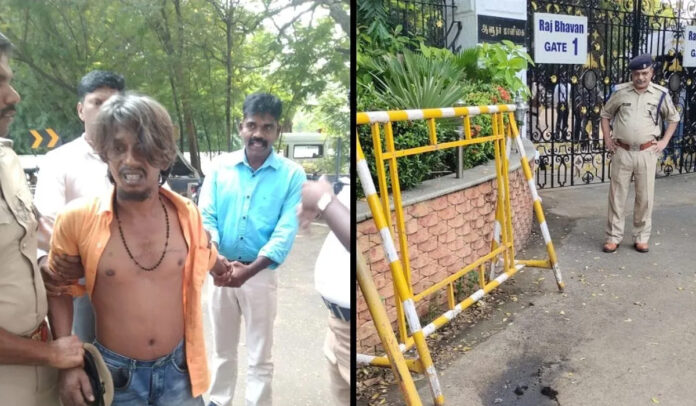A series of petrol bomb attacks, particularly targeting the homes of Hindu community and BJP leaders, has become disturbingly frequent in Tamil Nadu, notably in areas like Coimbatore and Madurai. However, a notable escalation occurred on October 25 when unidentified individuals targeted the Raj Bhavan, the residence of the Tamil Nadu Governor, in Chennai.
The attack, involving a petrol bomb thrown at the main gate of Raj Bhavan, raised alarm not only for its audacity but also for the potential security risks. Although there was no harm to the security personnel on duty, the incident resulted in damage to the main gate. Subsequently, the Secretary of Raj Bhavan filed a police complaint, leading to an investigation.
The police, relying on CCTV footage, identified the perpetrator as Karukka Vinod, a known criminal previously on bail under the Goonda Act. Vinod, with a history of bomb attacks on the BJP party headquarters, Thenam Peta police station, and a government liquor store in Chennai, was swiftly arrested. Despite being accused in multiple cases, his release on bail raised eyebrows, particularly as he targeted a high-profile location like Raj Bhavan.
The seriousness of the situation prompted the Central government to intervene, directing the National Investigation Agency (NIA) to take over the case. This decision was fueled by suspicions that the attack could be linked to terrorist activities. The move indicates the gravity of the incident and the need for a thorough and specialized investigation.
The ongoing incidents of petrol bomb attacks in specific regions underscore the challenges faced by authorities in curbing such violence. The situation raises questions about the overall security environment and the effectiveness of legal measures in preventing individuals with a history of violence from repeating such offenses. As investigations continue, there is growing concern about the need for comprehensive security measures to safeguard public figures and critical establishments in the region.


